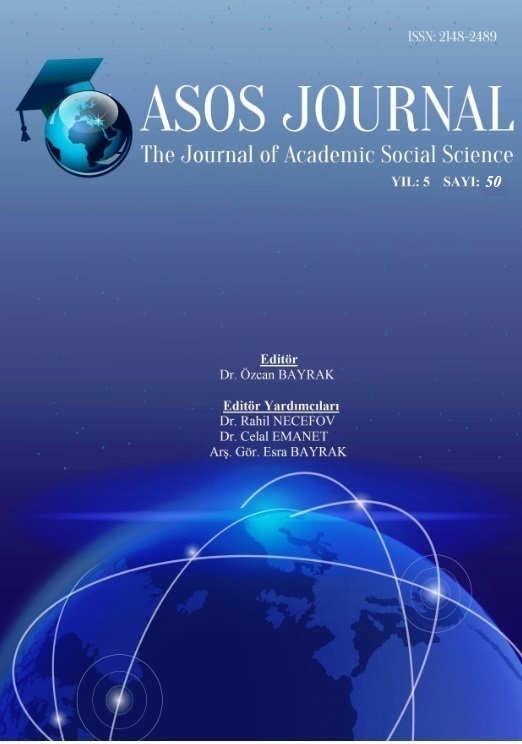Author :
Abstract
Öğretmenliğin kutsal bir meslek olduğu tezi, bir antiteze de zemin hazırlamakta; ancak üretilen söylemler çoğu zaman derinlikten yoksun kalmaktadır. Dolayısıyla bu araştırmada, öğretmenliğin kutsal bir meslek olarak algılanma(ma)sı durumunun diyalektiğini ortaya koymak amaçlanmıştır. Nitel olarak yürütülen çalışmaya, formasyon programından 128 (İlahiyat = 26; Felsefe Grubu = 78; Doğa Bilimleri = 24) kişi katılmıştır. Veriler, yapılandırılmış bir form aracılığıyla yazılı olarak alınmış; betimsel/tematik analiz teknikleriyle çözümlenmiştir. Bulgular şu noktaları ortaya koymuştur: (1) İlahiyat ve doğa bilimleri gruplarında mesleğin kutsal olduğu algısı yaygınken, felsefe grubunda karşıt görüşlüler de yer almaktadır. (2) Öğretmenlik mesleğinin kutsal olduğu tezi, şartname olarak belirtilen olmazsa-olmaz koşullara bağlıdır. (3) Mesleğin kutsal olduğu algısının temelinde dini referanslardan gelen telkinler kadar, insana/topluma hizmet vermesinden kaynaklanan mesleğin nüfuz alanının genişliği ve mesleğin doğasındaki güçlükler yatmaktadır. (4) Öğretmenliğin kutsal olamayacağı algısı ise kutsallık kavramının içeriğindeki dogmatizm, mesleğin giderek düşen statüsü ve gevşek tutumlu bazı öğretmenlere dayanmaktadır. Bulgular iki karşıt söylemin birbirini tamamladığını göstermektedir.
Keywords
Abstract
The notion that teaching profession is sacred prepares a ground for its antithesis, yet the emerging discourses are often remained superficial. Therefore, this research aims at a dialectic of whether the profession of teaching is sacred or not. Participants in this qualitative study were 128 preservice teachers (Theology = 26, Philosophy = 78, Natural Sciences = 24) attending to a pedagogical formation program. The data were collected through a structured form and analyzed using the techniques of descriptive and thematic analyses. Findings revealed the following points. (1) The perception that the teaching profession is sacred prevail in the groups of theology and natural science, whereas the participants in the philosophy group hold the opposing views as well. (2) Sacredness or teaching profession depends on inevitable conditions stated as specifications. (3) At the bottom of the idea that the profession is sacred lies suggestions from religious references, the breadth of the field of influence of the profession arising from serving to humans and the inherent difficulties of teaching profession. (4) The perception that teaching is not a sacred profession depends on dogmatism inherent in the content of the concept of sacredness, the gradually decreasing status of the profession, and some teachers with a loose attitude toward teaching. Findings actually show that the two opposite rhetoric complement each other.





